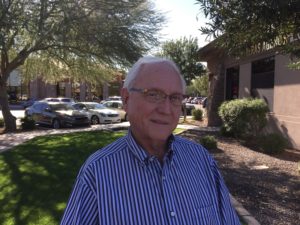 Those of us who stay abreast of national and world developments know that Facebook has been accused of disseminating fake news, coupled with allegations of other problems that collectively have tarnished the mega- company’s standing in the social media universe.
Those of us who stay abreast of national and world developments know that Facebook has been accused of disseminating fake news, coupled with allegations of other problems that collectively have tarnished the mega- company’s standing in the social media universe.
Full disclosure: It’s true that Facebook is one of the avenues we use to extend Wrangler News’ reach to its community.
However we’re none the less concerned over fake news and Facebook’s so far hazy response to addressing the problem.
More recently, we’re almost equally troubled by what we consider the ill-timed, ill-conceived announcement that Facebook is spending $300 million to ratchet up its
involvement in what it tells us will be local news.
Local news. Really? As if most of our country’s media haven’t already cut back on the number of trained, professional journalists writing neighborhood-focused content, it seems that Facebook thinks it can muster a horde of wannabe reporters, some we suspect with indeterminate agendas, to tell us what’s going on in our community.
Who are these people, anyway? Are we supposed to believe the “news” they deliver? Or that who-knows-how- many Facebook friends will, as a result of any reposting of the message, become automatic recipients of the same misinformation, ad nauseam.
Disturbingly, at least one survey reveals that the more people who get their information from an unverifiable source, especially one channeled through that online tsunami of real and virtual factoids, the more the information gains credibility.
After all, when so many people are passing it along, goes the theory, it has to be right. Right?
Also relating to Facebook’s plan to recruit contributors, the company says it will be employing “fact checkers” to validate whatever information it receives from its sources. We wish that could ease our fears. Unfortunately, with its inglorious history of random censorship involving stories it doesn’t like, Facebook’s concept of fact-checking doesn’t suggest we’ll be able to sleep well at night.
We all know that some media companies employ often subtle, occasionally perceptible methods of spinning news to conform to their own management’s internally established political biases. If that’s the same approach at Facebook, can we know that those same “fact checkers” will spring into action and raise an alarm?
We not only doubt that that won’t happen but that “fake news” likely will spin even further out of control than it currently is.
Facebook has prefaced its plans with some element of assurance that it will enlist the staff of selected newsrooms for the task of creating reportage. That sounds like a step in the right direction. But we’ll likely feel better about this if some recognized vetting process is employed to help ensure that the participating “journalists” are following accepted standards of reporting and not using Facebook’s vast reach as a way to proliferate the spread of misinformation.
Or, as we all now know it, fake news.

